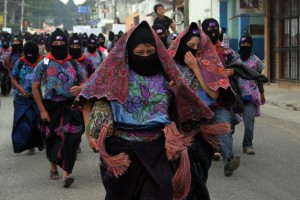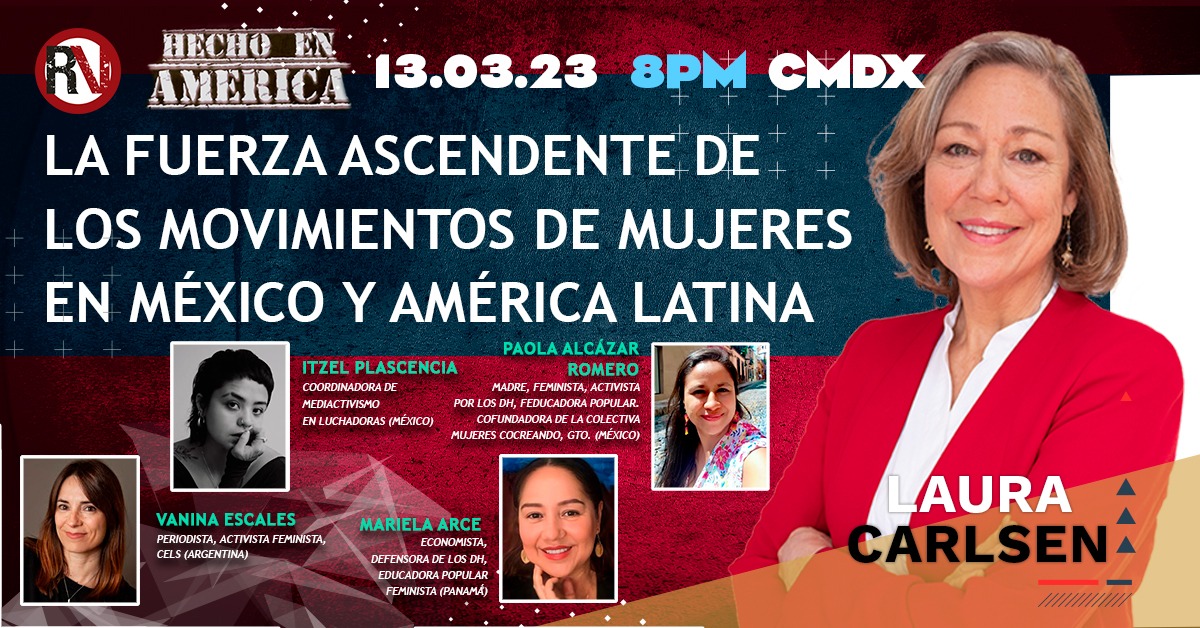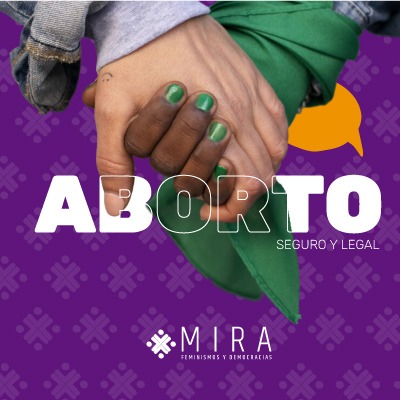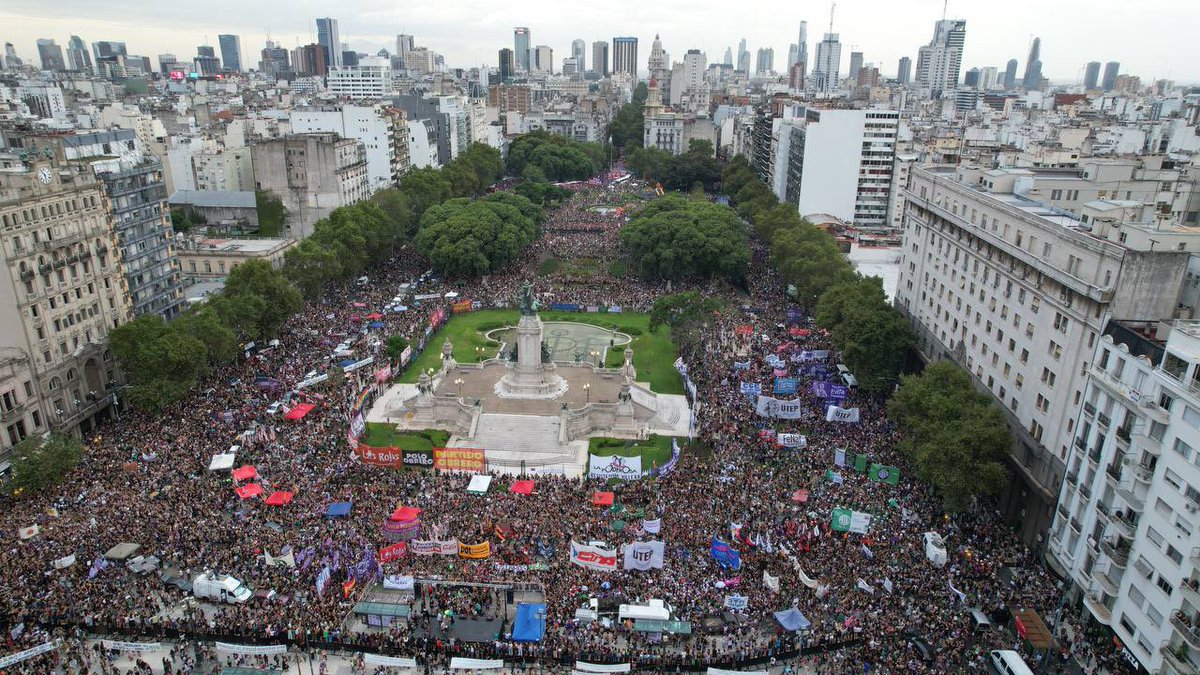
Editor’s note: This story was first published in Spanish at desinformemonos.org.
San Cristobal de las Casas, Chiapas, May 8. A poignantly silent march of the masses, an eloquent speech, a plaza brimming with Zapatistas, and organizations and collectives from The Other Campaign in Chiapas, united in their rejection of Felipe Calderón’s drug war. This, and more, marked the reemergence of the Zapatista Army of National Liberation (EZLN) after more than 5 years without protesting outside of its territory.
It was the first time the EZLN has rallied in silence and also, perhaps, its first time participating in a national protest initiated by an individual, the poet and writer Javier Sicilia, who is fueling a countrywide movement against the president’s violent drug war strategy.
In what turned out to be one of the Zapatistas’ biggest rallies in more than 17 years of public struggle (more than 15,000 supporters according to conservative estimates), the top brass of the EZLN’s Clandestine Indigenous Revolutionary Committee-General Command, including comandantes David, Tacho, Zebedeo, Bulmaro, Guillermo and Miriam, made an appearance.
It was Comandante David, of Los Altos, who read the EZLN’s communiqué to a plaza overflowing with Tzotzil, Tzeltal, Tojolabal, Chol, Zoque, Mame and Mestizo Zapatistas from Los Altos, la Selva and the North of Chiapas following the recital of the national and Zapatista anthems, listened to with striking solemnity.
“This is not about seeing who wins between Catholics, Evangelicals, Mormons, Presbyterians, non-believers or followers of any other religion,” he read. “It’s not about finding out who’s indigenous and who isn’t. It’s not about seeing who’s rich or poor. This isn’t about who’s on the left, center or right. Nor is it about deciding which is the best political party between the PAN, PRI, PRD and whoever, or if they’re all equally bad. It’s not about who’s Zapatista and who isn’t, and it’s not about supporting organized crime or the disorganized crime of this administration. No. This is about how people can choose to be whomever they want, believe or not believe, choose any ideological, political or religious belief, and have arguments, agreements or disagreements, all because of peace, liberty and justice.”
After many hours of travel from their communities, the Zapatistas marched around the Central Plaza with composure and discipline. The space was once again theirs, but this time they were dramatically united with other people and organizations, with an entire nation that has declared itself hasta la madre, fed up.
This significant demonstration unveiled the new generation of Zapatistas, many youths who were born after the armed revolt of 1994 and raised alongside the practice of alternative organizational forms and day-to-day operations.
The Zapatistas made clear that their support for the national protest, and particularly their silent presence in San Cristobal de las Casas, was not intended to point to a course of action nor answer to the question of what comes next. “We are not here to speak about our pain, our struggles, our dreams, our life or death…” they said. “Today we are here representing tens of thousands of indigenous Zapatistas, many more than you see here today, in order to tell those marching in dignified silence that in their demand for justice, their fight for life, their dream for peace, their call for freedom, we understand and support them. Today we are here to respond to the call of those who fight for life, to which the government responds with death.”
The importance placed on the movement by EZLN was made clear by the more than 30 comandantes and comandantas occupying the platform in front of the Cathedral of Peace. From there, Comandante David explained that the call for a national march came from people who “aren’t calling on us or trying to convince us to adopt a religion, idea, political thought or stance on social issues. They aren’t calling on us to remove one government in order to install another. Nor are they telling us to vote for this person or the next. They’re calling on us to fight for life, and life does not exist without freedom, justice and peace. That’s why this is a fight between those who want life and those who want death.”
Carrying thousands of cardboard signs bearing the slogans “No more blood,” “We’re fed up,” and “Stop Calderon’s War,” the Zapatistas also raised enormous banners with the following messages: “Brothers and sisters, we feel the pain for the loss of your family members caused by Calderon’s cruel war” and “Long live life, freedom, justice and peace.”
Diverse organizations and collectives came together for the march: neighborhoods and districts of the city, indigenous and peasant communities from Chiapas and internationalists from many parts of the world. Their banners demanded justice and peace for different issues and sectors
On one side of the plaza a group of children yelled, “we want peace, we want peace, let me speak, we want peace.” The protest was also a reunion, a convergence of organizations and people who put their differences aside to come together as they had not done in some time.
With covered faces and a renowned discipline, they marched by rank from the Indigenous Center for Integral Training (Cideci), in the outskirts of the city, all the way to the plaza of peace four hours later. As the front of the contingent stepped into the plaza, the road to San Juan Chamula, the neighborhood of San Ramon, el Puente Blanco and Diego de Mazariegos Street were packed with Zapatistas.
Near the end of his speech Comandante David repeated seven times a message directed to all the victims of Calderon’s war and their families, a slogan that the Zapatistas have used for more than 17 years and which, on this occasion, they let loose in a single shout, with their left fist raised, in one of the most emotional moments of the gathering: “You are not alone.”
“Now we’ve said what we had to say. We are tired, but that’s how the struggle goes,” said the master of ceremonies towards the end. Referring to the translations in tzotzil, tzeltal, tojolabal and chol, she pointed out with Zapatista humor, “we know you didn’t understand anything, but, oh well, you had to sit through it. Thanks for your patience.” Then, she said goodbye, “Just as we came we will leave.”
Gloria Muñoz Ramírez is the director of the news and analysis website desinformemonos.org.
Translated by Brandon Brewer



